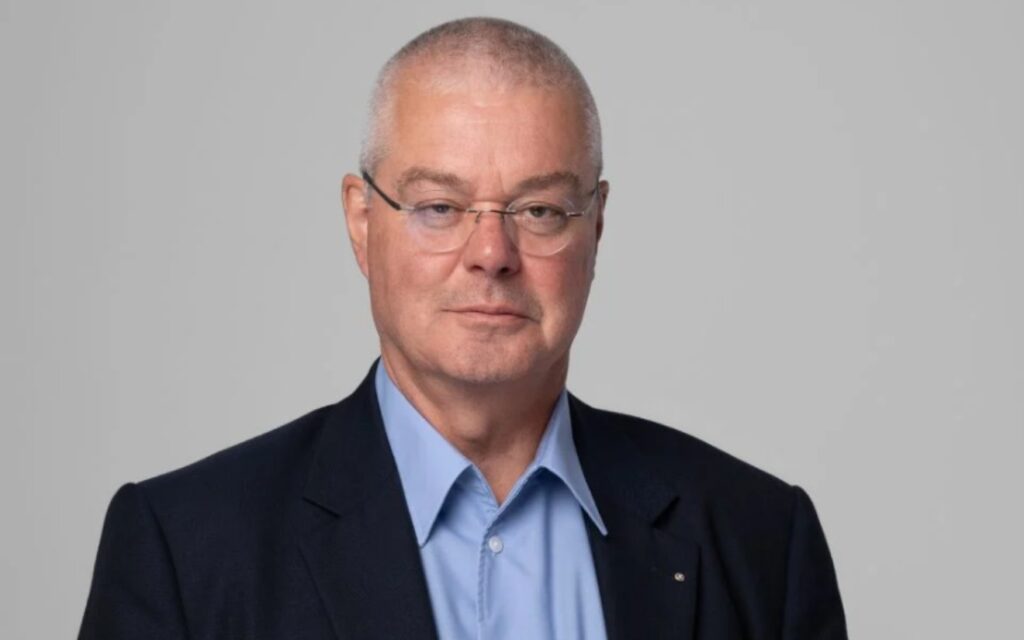

He trained as a farmer, worked at a bank, sold wood for vehicle bodies - and later became a freelance journalist focusing on agriculture, politics and renewable energies. Today he is Vice President of Biofuels Switzerland, the official association of the Swiss biofuels industry.
At first glance, Ulrich Frei's career seems varied and unusual, but a closer look reveals a clear line: a connection to nature, attitude, a desire to create - and a consistent feel for topics that move people. "I never consciously made a career plan for myself," he says, before describing his beginnings: After completing a type B secondary school with Latin, Ulrich Frei opted for an apprenticeship as a farmer. He planned to study agricultural engineering at the ETH, but things turned out differently after his type E school-leaving certificate - he ended up working at a bank. This was followed by training and further training as a banking specialist, a specialist certificate in marketing and a position as sales manager in the timber industry. The large network from which his current work still benefits stems from this time.
2005 was a turning point: leaving a traditional line career led to self-employment - and thus to more creative freedom. As a freelance journalist and PR consultant, he began to focus on topics relating to agriculture, energy and politics. One mandate after another brought him closer to the world of renewable fuels. Then, in 2007, the founding of Biofuels Switzerland - a logical step. The political debate on the tax deductibility of biofuels was at its peak. "We knew then that if we wanted to have a voice that was heard, we needed a common platform." The spring session of 2007 in parliament brought the breakthrough, and in 2008 tax relief became a reality. Since then, the association has developed into an important voice - not only in the political arena, but also with market players and society.
Despite successes, the work remains challenging. The political will is there, but it is limited. "You have to do something - but the enthusiasm is limited." The balancing act between idealistic aspirations and economic feasibility remains. It is not enough for biofuels to be ecologically sensible or politically desirable - they must also be financially attractive for producers, importers, filling station or fleet operators. The decisive factor is that it pays off.
"The market should decide which fuel alternative prevails - but with a level playing field."
Ulrich Frei
Ulrich Frei is increasingly concerned about the unequal treatment of renewable drive systems. "People don't measure with the same yardstick. The entire history of the development of electricity and batteries is often ignored." While electromobility is strongly promoted politically, biofuels often lead a niche existence - despite demonstrable CO₂ savings. It's not a question of either-or, but of fair framework conditions. Ulrich Frei is committed to this precisely where practice, politics and attitude meet - not driven by trends, but by conviction and the will to actively help shape them. You can read more about his path and his attitude in our interview of the month.
Mr. Frei, if you had taken a different path when you were younger, what would you have become?
"After graduating from high school, I actually wanted to become an agricultural engineer - but life took me first to the bank, then into industry. In 2005, I ventured into self-employment as a journalist and PR consultant. From then on, the focus was clearly on agriculture, energy and renewable fuels - topics that are still with me today. My network from previous positions has often opened doors for me.
Even after decades in the profession, I sometimes think back to earlier decisions. I could have taken the plunge into self-employment earlier - but I have no regrets."
What is your favorite way to start your day?
"With a hearty breakfast - nothing works without energy."
What does success mean to you personally?
"Success comes when you enjoy your work and feel satisfied. But for me, success also means dealing with setbacks. You need a healthy balance between success and failure - if you only strive for success, you won't be happy in the long term.
Incidentally, I don't think much of the so-called work-life balance. It suggests a separation that never existed for me. I've always lived while working - not alongside it."
What would you work for free for a week?
"In summer on an alp - although it can easily be a few weeks."
What was the best professional advice you ever received?
"The best professional advice came from a former boss - he was also something of a mentor to me. He taught me 'drawer thinking'. In other words: concentrate fully on one topic, complete it properly - and only then open the next drawer.
This has helped me enormously, especially when working with complex issues where everything happens at the same time. It keeps me focused - and I don't lose sight of the big picture."
We would like to thank Mr. Frei for his contribution to this article.
Batterman Consulting Basel AG
Executive Search,
Byfangweg 1a, CH-4051 Basel
T +41 58 680 55 55
basel@batterman.ch